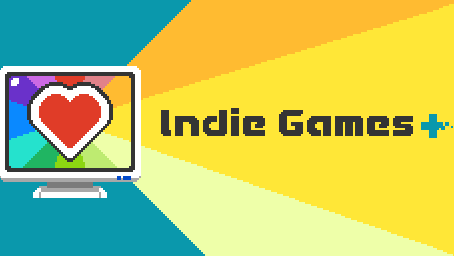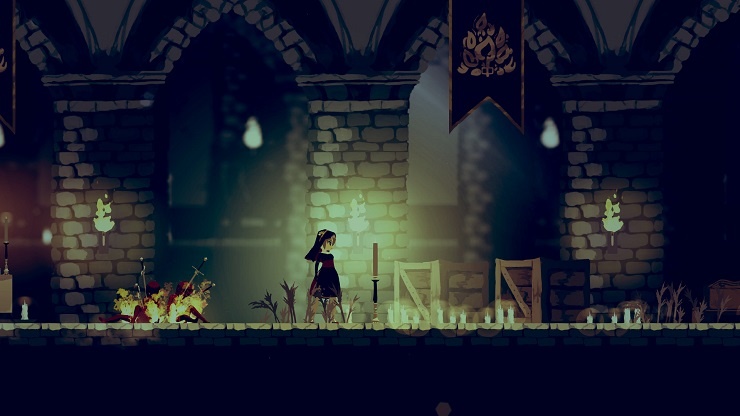Dan Stern of DANGEN Entertainment had a chat with us for this week’s Publisher Profile, talking about the special Japanese game development connections and localization help they can bring to a game.

Who are you?
Dan Stern, DANGEN Entertainment: My name is Dan Stern. I’m one of the DANGEN Entertainment founders and I handle developer relations for half of our projects (the other half is handled by Nayan Ramachandran). Developer relations sounds vague, which is because it is. It starts with scouting new games for us to publish, but also means working with developers on literally anything they need (from release management to promotion to getting cold medicine, water or snacks at tradeshows). I’m in my fifth year doing this work, and my eleventh year working in Japan.
Can you tell us a bit about your company?
DANGEN Entertainment is an Osaka-based indie publisher. We’re indie in that we both work with indie developers and are independent ourselves. All of us have worked in localization, which is why localization quality means so much to us. And it’s why improving the working conditions and rewards for translators in the industry (like sharing revenue with the translators) is important to us, too. We’re not solely focused on localization, though. Our focus is on general publishing for world-wide projects.

What work do you do to help developers reach an audience? How do you make developers’ lives a little easier?
Communicate: In every relationship, good communication is clutch. We keep a Slack that all our partners are invited to join. We talk frequently and are available almost any time of the day. Everyone also talks in shared channels for development support and just goofing off. Corny as it sounds, it feels like we’re all one big family [laughs].
Creator collaboration: We have great connections in the Japanese industry and love collaborating with creators who have inspired our developer partners. We’ve done music (Yuzo Koshiro of Streets of Rage for The TakeOver and Tsukumo Hyakutaro of Thunderforce for Devil Engine). We’ve done voice over with Tak Fuji and streams with Koji Igarashi. When the ties are close between the games, these collaborations are fun for everyone. They bring both additional quality and renown to the projects.
Streamer relations: We work with streamers in multiple languages. Chad “Chyadosensei” Porter is our resident partnered streamer, and it helps a lot to have a streamer’s perspective on how we can best work with folks on Twitch, YouTube, Mixer, what have you. We want to help streamers as much as we want to get word out about the games.
We only publish ten titles per year. We’ve seen other publishers and services that work on anywhere between twenty-five and a hundred games a year. We feel it is crucial that we limit the number of slots we allocate to projects so that we can give every game the love and attention they need to thrive during development and throughout the release/promotion process.
Programming, porting, talent sourcing, testing etc.: There’s a ton of other support we provide, whether that’s porting games to new platforms so devs can focus on other projects or sourcing help they need with a specific kind of work.
What is it that you’re on the lookout for (genres, content, etc.)?
Games that we love ourselves [laughs]. There’s not a certain genre we’re solely interested in because we have broad tastes. But we definitely look at stuff like core concept, gameplay, art direction, story, etc.. Does the game achieve its own goals? And after we play, how do we feel about it on a personal level? Ideally, I want to feel hooked. I want to set aside an hour to play and then fall behind on my other work because I played for two or three. I trust myself to fall in love with great games, and I’ve found my intuition is right that our fans will love it too.

What do you look for in the games you choose to publish? In the developers you want to work with?
Honest, authentic love. Not just for their game or making games, but also for their own health and well-being. Overwork is a problem for indies, too, and we want our partners to take care of themselves. That often means planning ahead, organizing production, or asking for help. The last thing I want is for one of my developer partners to take on the world by themselves. I put a portion of my life into each project and I’m always there for folks when they need me. We’re in this together.
Love comes through in the games, too, whether it’s a love for conveying a message or love for a game design. It’s at the heart of making something powerful that others will be moved by. This motivates everyone involved in the project and produces better results when it’s time to sell the games, too.
Is there anything developers do to make themselves more appealing to publishers? Anything they do that makes them less appealing to publishers?
Be confident, be professional, communicate clearly – much of what applies in other fields. I’ve worked in education, hardware production, localization, and now game publishing. Communicating often, clearly, and well in advance makes everything go much smoother in all of those.
I love getting emails with an organized press kit complete with screenshots, video, and a build. My first goal with any game is to learn about it and get that chance to fall in love, so there’s no limit to how much info I like to get. From there, it gets even better if I can learn the needs of the project. What are they looking for in a publisher, and what’s the production schedule look like? Having that kind of information early not only teaches me about the game, but also gets me thinking how to best communicate why it’s great to players.
And it assuages a concern that all publishers have: that the game will, in fact, be completed (or even better, reliably completed by a date you can plan around). Professionalism shows the developers’ experience and ability to ship the game, which is very comforting when it comes to the financial risks of projects.

